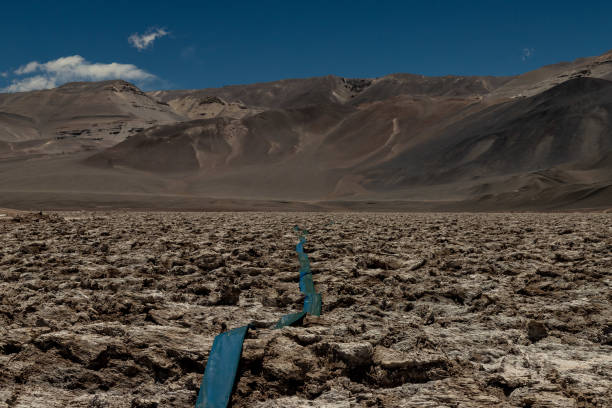Rio Tinto acquires $825m Argentine lithium project after Serbia plans blocked

Anglo-Australian miner Rio Tinto today announced it has agreed to buy the $825m Rincon lithium project in Argentina from Rincon Mining, in an effort to keep the momentum going for its push into battery materials as a way to future-proof for the transition to net zero.
The world’s second-largest miner said it has purchased the lithium project in from Rincon, a company owned by funds managed by the private equity group Sentient Equity Partners, for $825m.
It comes just five days after local authorities in western Serbia suspended plans that would have enabled the mining group to open a $2.4bn lithium mine in the country, after thousands of protesters in Belgrade and other parts of the countries took to the streets for the last three weekends to oppose the plans.
Today, Rio Tinto said the new object of its attention, and undeveloped lithium brine project, is located in “the heart of the lithium triangle” in Salta Province, and has the potential to have one of the “lowest carbon footprints in the industry”.
“This acquisition is strongly aligned with our strategy to prioritise growth capital in commodities that support decarbonisation and to continue to deliver attractive returns to shareholders,” said CEO Jakob Stausholm.
“It is expected to be a long life, low-cost asset that will continue to build the strength of our Battery Materials portfolio, with our combined lithium assets spanning the US, Europe and South America.”
Once the transaction is complete, the miner will carry out studies to confirm the lithium resources and ensure environmental, social and governmental compliance – where it fell short in Serbia.
The group first announced its intention to build a $2.4bn lithium mine in Serbia in July, in a bid to become the largest source of lithium supply in Europe for fifteen years.
Rio Tinto’s Serbia proposition represented the first move by one of the world’s mining giants to focus on metals in order to capitalise on shift to electric cars.
Lithium carbonate is the key material used in large scale rechargeable batteries for electric vehicles made by the likes of Tesla and Volkswagen.
Royal Bank of Canada felt that Rio Tinto would continue to face difficulties from issues with iron ore production over the course of the year.
Tyler Broda, head of EU metals and mining research, said: “Rio Tinto’s operations continue to meander and mine capacity issues in iron ore are likely to weigh again in 2022, albeit on an already reduced forecast production profile. Although iron ore prices have provided the shares some solace in recent weeks, we continue to see a challenging outlook for iron ore over the course of 2022. “
While the analyst praised the miner’s financial position, he believed there were geopolitical pressures facing the industry which would provide headwinds in terms of production.
He added: “Like all miners, the current value trade provides a benefit, and we believe the balance sheet remains in exceptional shape. But beyond this, with wider strategic questions and unresolved situations in Mongolia, Serbia and Guinea, we continue to prefer other exposures, like Glencore and Anglo American globally and BHP in Australia.”